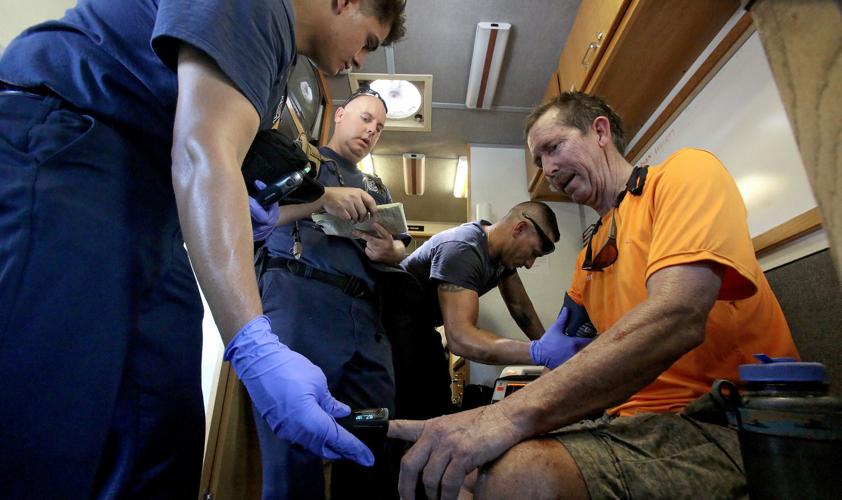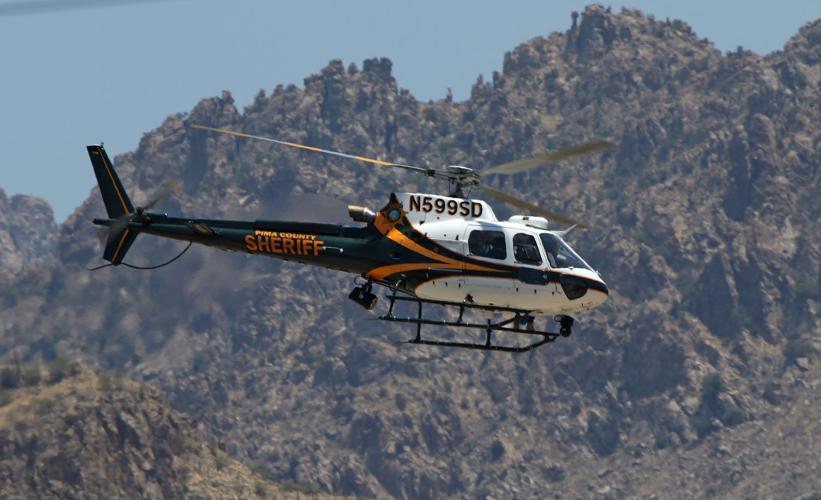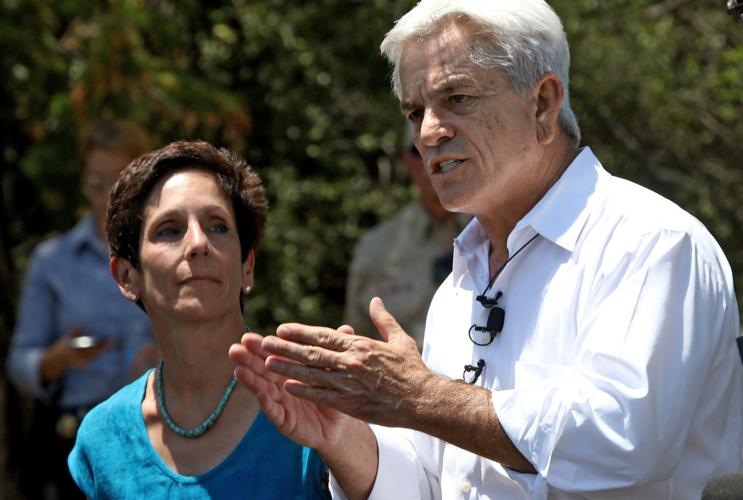In the wake of three heat-related deaths on Sunday and dangerous high temperatures, authorities are calling for residents to make responsible decisions when venturing outdoors.
Pima County Sheriff Chris Nanos, whose agency is leading the effort to find a missing hiker along Ventana Trail #98, lamented the deaths and called on residents to use “just an ounce of smartness” in avoiding strenuous outdoor activity during extreme heat.
“I walked outside yesterday and went, ‘This is an oven, I think I’m going to go to the movie theater,’” Nanos said at a Monday press conference at the Ventana trailhead near the intersection of North Craycroft and North Kolb roads.
Coronado National Forest spokeswoman Heidi Schewel said people who use trails need to understand their limitations and not push themselves beyond them.
“A lot of individual safety is tied to situational awareness and personal responsibility,” she said.
As of Monday afternoon, authorities were still looking for Marcus Turowski, a 33-year-old German man visiting Tucson. Anyone who might have seen Turowski on the trail is asked to call 911.
Turowski and two other German men were hiking the Ventana trail Sunday morning when they apparently became dehydrated. One of the men hiked out of the trail, and searchers found one of his companions, Stefan Guenster, 57, dead about 4 miles from the trailhead, officials said.
In a separate incident Sunday, Adrienna Rasmussen, 18, died from heat-related complications while hiking with a 22-year-old man on the Finger Rock Trail.
The man was airlifted to Tucson Medical Center and treated for heat-related illness.
Also on Sunday, 54-year-old Jana Kirkpatrick died while walking on The Loop multiuse path in the 5000 block of South Outlet Center Drive, near East Irvington Road and Interstate 10, officials said. Kirkpatrick’s husband called 911 when she didn’t return from a walk she took at 3 p.m.
Authorities also responded to a call for help from a 22-year-old woman who suffered heat-related problems while hiking with a friend near Seven Falls in Sabino Canyon. The two were able to hike out on their own around noon Sunday after sheriff’s deputies were called and provided them with water.
Nearly 30 volunteers with the Southern Arizona Rescue Association pitched in to help find the stranded hikers, said spokeswoman Shelley Littin.
“Yesterday certainly was an anomaly,” Littin said. “I don’t remember a time where we’ve had three calls in one day.”
Nearly 30 volunteers pitched in to find stranded hikers, about three times the normal number of volunteers, she said, adding some of them took vacation days from work in order to help.
Contrary to a commonly held belief, Nanos said about 80 percent of rescues are of local residents. And about 85 percent of heat-related emergencies in Pima County involve local residents, said Dr. Michele Manos, a senior consultant at the Pima County Health Department.
As the rescues mount, some local residents have called for a law that would charge stranded hikers for the cost of their rescue.
When asked whether he thought such a law would be appropriate, Nanos said he would “leave that to others to decide and argue.”
“The ‘stupid motorist’ law we have is there, and it’s never really done anything,” Nanos said. “I don’t want to fine people to get my resources back. We’re obligated to keep people safe and rescue them.”
The Southern Arizona Rescue Association (SARA) opposes such a law, as does the national Mountain Rescue Association.
SARA issued a statement Monday in support of Mountain Rescue’s position that “no one should ever be made to feel they must delay in notifying the proper authorities of a search or rescue incident out of fear of possible charges. The expert volunteer teams of MRA are proud to be able to provide search and rescue at no cost and have no plans to charge in the future.”
Officials said they could not close the trails during times of extreme temperatures.
“The problem is we can only advise you,” Nanos said. “You have the right and the freedom to go where you want.”
The Coronado National Forest does not close trails due to weather conditions, Schewel said.
“We encourage people to know the environment that they’re entering and know what conditions to expect and plan accordingly,” Schewel said.
Besides, she said, closing the trails wouldn’t stop everybody from using them.
Heat-related illness progresses from thirst, at which point the body is already mildly dehydrated, to heat cramps, heat exhaustion and heat stroke, which is life-threatening, according to the Arizona Department of Health Services.
The agency advises drinking at least 2 liters of water daily, even while staying indoors, and avoiding alcohol and caffeine.
When outdoors, the agency advises drinking at least 1 liter of water each hour.
Even more water is needed during strenuous outdoor activity, when the human body can lose up to 4 liters per hour.
To minimize heat exposure, the agency advises wearing light-colored clothing, which reflects light, and wearing a hat or using an umbrella. Smaller, more frequent meals also help avoid metabolic heat.









